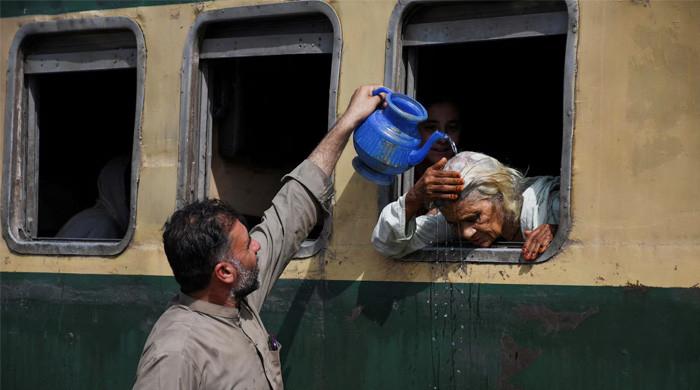Heat is now the main cause of deaths related to climate worldwide, with an estimate of 489,000 people who die from heat -related causes, according to the World Health Organization (WHO).
As extreme temperatures become more common in Pakistan too, let’s deepen the WHO guidelines to help people stay safe during heat waves.
In extreme heat, the human body struggles to regulate the internal temperature, increasing the risk of heat exhaustion, renal injury and cardiovascular stress. The effects can be sudden and serious: hospitalizations and deaths can increase in a matter of hours or days of a heat wave beginning.
Who emphasizes that heat impacts are predictable and largely preventable. With effective public health measures and coordinated action in all sectors, many deaths and diseases can be avoided.
However, consciousness remains low among both health workers and among the general public.
WHO recommends staying inside during the hottest moments of the day and keeping fresh living spaces when blocking direct sunlight with curtains or blinds and ventilating at night. The use of fans or air conditioning, if available, can offer critical relief, with recommended air conditioners to establish 27 ° C.
Even a few hours in a cold environment can significantly reduce the risk of heat -related diseases.
Hydration is another key aspect of heat protection. People who drink water regularly are advised, even if they do not feel thirst, approximately one cup per hour and at least 2 to 3 liters per day.
They should avoid drinks that can lead to dehydration, such as alcohol and sugary drinks. Eating lighter meals can also help the body in front of high temperatures.
Taking shower or cold baths can help lower the body temperature, and those that must leave must remain in shaded areas as much as possible. Light and comfortable garments made of breathable cloth, as well as wide -winged hats and sunglasses, can offer additional outdoor protection.
Who also emphasizes the importance of verifying family, friends and neighbors, especially those who are older, live alone or have health conditions that put them at greater risk during extreme heat.
“Some people are particularly vulnerable to the effects of heat, including young children, older people and people with chronic health conditions, so keep in touch with family, friends and neighbors, especially those who spend a lot of time alone. When taking care of ourselves and staying informed, we can minimize the impact of extreme heat in our communities,” said the official official Syla of the WHO.




